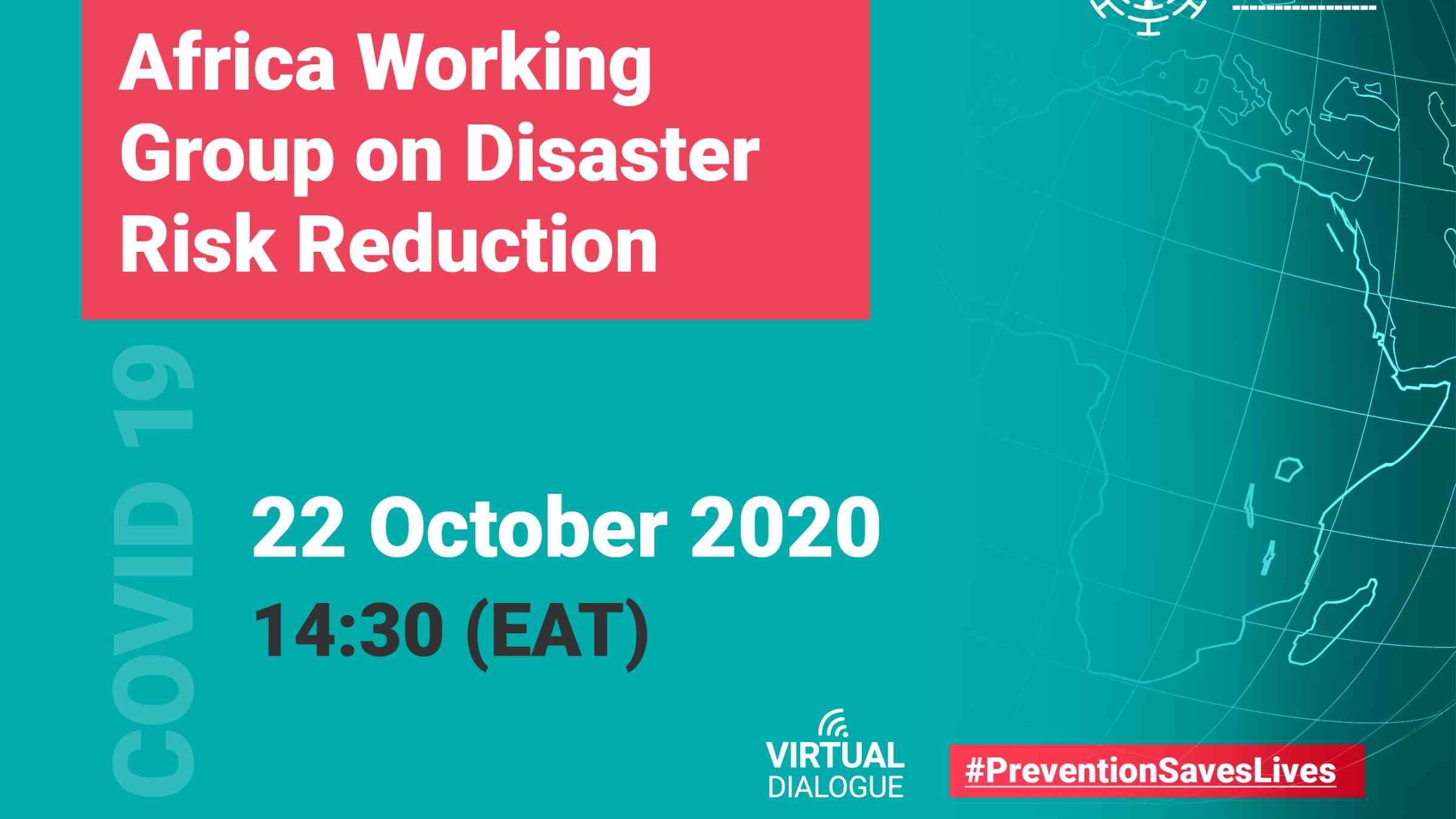Second virtual meeting of the Africa Working Group on Disaster Risk Reduction

Second virtual meeting of the Africa Working Group on Disaster Risk Reduction: Progress and next steps to strengthening support to Member States to effectively prepare, respond and recover from COVID-19 and other hazards
Thursday, 22 October 2020, 14:30 p.m.-17:00 p.m. (Addis Ababa/Nairobi time)
Duration: 2:30 hours
Language: English and French
Background : Reconstituted in 2011 in line with the recommendation of the Second African Ministerial Conference on Disaster Risk Reduction (April 2010) adopted by the Executive Council of the African Union in January 2011 (EX.CL/Dec.607 (XVIII), the Africa Working Group on Disaster Risk Reduction (AWGDRR) is a principal continental coordination mechanism with a mandate to provide technical and coordination support to Member States, Regional Economic Communities (RECs), African Union Commission (AUC) and partners to implement the Africa Regional Strategy for Disaster Risk Reduction and its Programme of Action. Following the adoption of the Programme of Action for the implementation of the Sendai Framework in Africa (PoA) in January 2017, the AWGDRR was revitalized to enable it to effectively deliver on its mandate. Meeting twice a year, the AWGDRR has held 15 sessions so far, which resulted in concrete recommendations to advance the DRR agenda across the continent, including through accelerated implementation of the Tunis Declaration (October 2018) and the Africa Common Position to the Global Platform for DRR (May 2019) adopted by the African Union Heads of State and Government. AWGDRR was instrumental in the process leading up to the development and adoption of these two guiding documents.
AWGDRR continues to take steps to keep the momentum going during the COVID-19 pandemic and beyond by strengthening its support to Member States, RECs, AUC and other partners to better prepare, respond and recover from COVID-19 and other hazards in a more systemic, coherent and integrated manner in line with the recommendations from the meeting with Member States, RECs and other stakeholders held on 28 April 2020, as well as action points that came out of its first virtual meeting held on 23 July 2020.
The first virtual meeting of the AWGDRR in particular was an opportunity for the group to unpack the above mentioned recommendations from the April 2020 meeting and identify concrete action points within its mandate with the view to focusing its support on addressing priority areas identified by Member States and RECs to effectively manage COVID-19 and other hazards in their respective countries and regions. Priority areas identified include: advocacy and awareness raising, resource mobilization, capacity building, multi-sectoral and multi-stakeholder coordination mechanisms, multi-hazard early warning systems, risk governance, and understanding and management of systemic risk.
The second virtual meeting of the AWGDRR will therefore focus its deliberations on ways to increase its efforts to fully address these priorities.
Objective: The main objective of the meeting is to discuss progress and next steps towards addressing priorities identified by Member States and RECs at the first virtual meeting of AWGDRR to effectively prepare, respond and recover from COVID-19 and other hazards. The meeting will also be an opportunity for the AWGDRR to discuss progress and next steps with respect to the development of national and sub-regional DRR strategies and plans that integrate biohazards such as COVID-19, as well as the use of the online Sendai Framework Monitor (SFM) system to monitor and report progress of implementation.
Expected outcomes: Concrete action points/recommendations to: (i) fully address the priorities identified by Member States and RECs during the first virtual meeting of AWGDRR to effectively prepare, respond and recover from COVID-19 and other hazards; and (ii) accelerate efforts to achieve target (e) of the Sendai Framework and the PoA by the end of 2020 and improve coverage and quality of reporting using SFM.
For more information, please contact: Gatkuoth Kai (kaig@africa-union.org), AUC and Mathewos Tulu (Mathewos.tulu@un.org), UNDRR Regional Office for Africa.